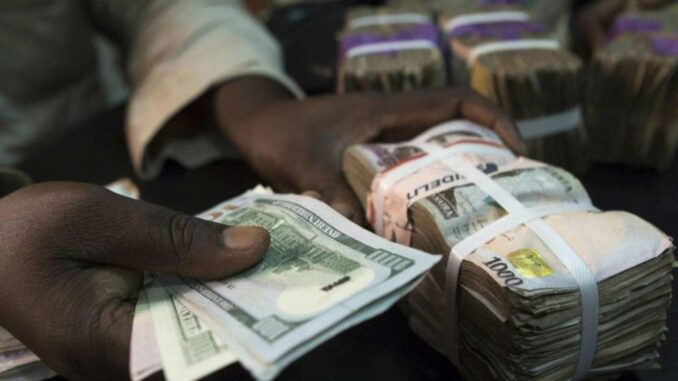
ABUJA—THE Senate has begun moves to restore Nigeria’s monetary sovereignty by outlawing the use of foreign currencies for payments and transactions within the country.
The move is a ban on foreign currency payments to ensure that this prohibits salaries, transactions and payments in foreign currencies, ensuring all workers, including expatriates, are remunerated in naira as this will eliminate discriminatory practices and bolster confidence in the local currency where it becomes mandatory for use naira to pay for exports.
To this effect, the upper chamber is working on a proposed bill to amend the Central Bank of Nigeria, CBN, Act, 2007.
Titled “A Bill for an Act to Alter the Central Bank of Nigeria Act, 2007, No. 7, to Prohibit the Use of Foreign Currencies for Remuneration and for Other Related Matters,” the bill is sponsored by the Chairman, Senate Committee on Reparations and Repatriation, Senator Ned Nwoko (PDP, Delta North).
He called for a ban on the use of the United States dollar and other foreign currencies as means of exchange and payment for goods and services in Nigeria.
According to him, the use of foreign currencies in Nigeria, their prevalence, and dominance in the financial system has sidelined the local currency, the naira, causing a negative impact on its value.
He emphasized that his passion for this idea stemmed from the belief that the proposed ban held the key to Nigeria’s economic freedom and growth.
He noted the urgent need to prohibit the use of foreign currencies in Nigeria, just as he described the use of the dollar, Pound Sterling, and other foreign currencies as a colonial hangover.
Nwoko explained that while Nigeria gained independence from the United Kingdom in 1960, it had yet to achieve economic independence, even 60 years after.
The bill, which is a bold move to redefine the country’s monetary landscape, aims to restore Nigeria’s monetary sovereignty by outlawing the use of foreign currencies for payments and transactions within the nation.
According to Nwoko, the bill represents more than just a policy adjustment, as it is a visionary blueprint for Nigeria’s economic independence.
He added that by prioritizing the naira, the bill laid the groundwork for a fairer, more inclusive, and self-reliant economy.
It also challenges entrenched colonial-era practices, fosters industrial growth, and positions Nigeria as a leader in Africa’s economic resurgence, adding that if passed herald a transformative era for Nigeria that is marked by innovation, cultural pride, and sustainable growth anchored in the strength of its own currency.
On key policies proposed in the bill: “Ban on Foreign Currency Payments: Prohibits salaries, transactions, and payments in foreign currencies, ensuring all workers, including expatriates, are remunerated in naira. This will eliminate discriminatory practices and bolster confidence in the local currency.
“Mandatory Naira Payments for Exports: Requires crude oil and other exports to be sold exclusively in naira, compelling international buyers to purchase the currency, thereby driving its demand and value.
‘’Financial System Transition to Naira: Positions the naira as the central currency for all financial operations, reinforcing its dominance in the economy.
“Elimination of the Parallel Market: Seeks to abolish the informal currency market, which undermines the formal economy through unethical practices, such as lround-tripping by banks.
“Support for Local Manufacturers: Directs banks to provide loans at affordable interest rates to stimulate industrialization and economic growth.
‘’Reform of Foreign Reserve Practices: Advocates storing Nigeria’s foreign reserves domestically to safeguard the country’s economic sovereignty and reduce exposure to external vulnerabilities.
“Adoption of Comprehensive Policies: Proposes an integrated approach to economic development, focusing on production, financing, and local innovation to strengthen the economy.”
END

Be the first to comment